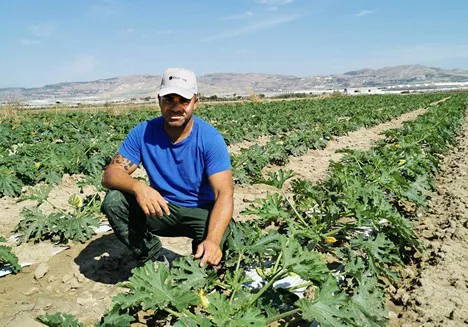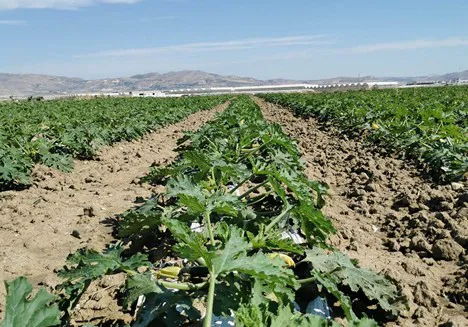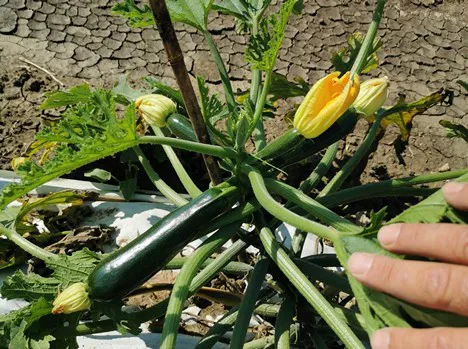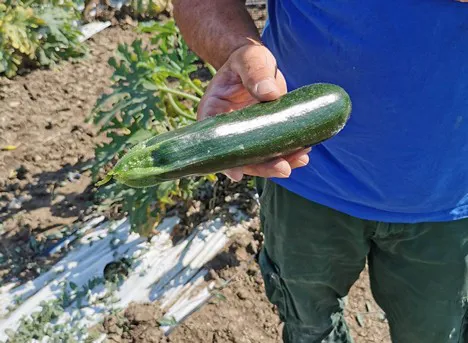"We have finally solved the New Delhi problem on courgettes grown in open fields," said Massimo Morello, owner of the farm that bears his name, located in Licata (AG) in Sicily. He hasn't been able to grow dark green courgettes in open fields for years because of this pathogen. "Courgettes could only be grown thanks to costly agronomic methods, exclusively in protected structures and suitably equipped with nets, non-woven fabric (TNT) sheets, and other devices that necessarily burdened farms with exorbitant costs," added Morello.
 Massimo Morello
Massimo Morello
Courgettes are a rather important product for the company, to the extent that out of a total of 22 hectares, 13 are destined for the reference as mentioned above, 10 of which, historically, in polytunnels.
"The polytunnels are useful for transplanting in autumn, to ensure continuity of production, but that's the only function of the sheltered structure; it will not be helpful to protect the courgettes against the New Delhi virus, which is carried by the white butterfly (Bemisia tabaci), and can be found everywhere, especially at high temperatures.


"We decided to use the Shiva courgette variety from HM.CLAUSE to combat the virus. This is a plant whose gene pool is able to resist the virus, which allows farmers to grow in open fields with less problems".
"Precisely, ours is a late summer field cultivation (August transplanting), born from an insight that turned out to be right, since the ideal solution for Shiva zucchini is the polytunnel with transplanting at the end of August and September.

In addition to courgettes, the company grows artichokes, peppers, cantaloupes, and a very special tomato, an ancient variety called Buttiglieddru di Licata. It is similar to the pizzutello, it's of exceptional taste and is also recognized by Slow Food.
For more information:
Azienda Agricola
Massimo Morello
Via Po, 18
92027 Licata (AG) – Italy
+39 347 7695170
massimomorello2@gmail.com
